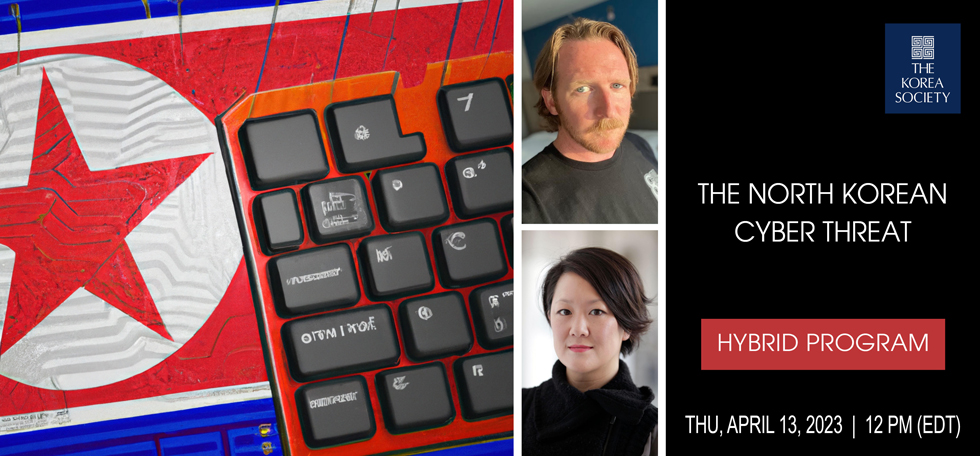The Insider Threat: North Korean Cyber Operations Targeting Remote US Workers

Table of Contents
Methods Employed by North Korean Actors
North Korean state-sponsored actors, notably groups like Lazarus Group, employ a range of tactics to infiltrate remote work environments. These sophisticated attacks often leverage social engineering techniques alongside advanced malware.
Phishing and Spear Phishing Campaigns
Phishing remains a potent weapon in the arsenal of North Korean cybercriminals. These campaigns are meticulously crafted to exploit the trust of remote workers.
- Impersonation: Emails often impersonate legitimate organizations, such as banks, HR departments, or software vendors, urging immediate action.
- Urgent Subject Lines: Creating a sense of urgency, these emails often use subject lines like "Urgent Security Alert" or "Password Reset Required."
- Malicious Attachments: Attachments containing malicious macros, malware, or links to compromised websites are frequently used to deliver payloads.
- Example: In 2022, a spear-phishing campaign targeting a US financial institution resulted in a significant data breach, highlighting the devastating consequences of successful phishing attacks.
Malware and Ransomware Attacks
Beyond phishing, North Korean actors deploy sophisticated malware and ransomware to gain unauthorized access, steal data, and disrupt operations.
- Lazarus Group Tactics: This notorious group is known for using custom-built malware, often delivered through spear-phishing emails or exploiting software vulnerabilities.
- Ransomware Impact: Ransomware attacks can cripple remote work environments, leading to data loss, significant financial losses, and extended operational downtime. Recovery can be costly and time-consuming.
- Data Exfiltration: Malware is often used not just for disruption but for data exfiltration, stealing sensitive intellectual property, financial records, and personal information.
Exploitation of Vulnerabilities in Remote Access Software
The reliance on remote access software (RAS) in remote work environments creates a significant vulnerability. North Korean actors actively exploit weaknesses in these applications.
- Common Vulnerabilities: Outdated versions of VPNs, RDP, and other RAS applications often contain known vulnerabilities that can be easily exploited.
- Lateral Movement: Successful exploitation allows for lateral movement within a network, enabling attackers to access more sensitive systems and data.
- Patching and Updates: Regular patching and updates are crucial to mitigating these risks. Failing to do so dramatically increases the likelihood of a successful attack.
Motivations Behind North Korean Cyber Operations
The motivations behind North Korean cyber operations are multifaceted, ranging from financial gain to geopolitical objectives.
Financial Gain
Cyberattacks provide a significant source of revenue for the North Korean regime.
- Cryptocurrency Heists: North Korean actors are known for targeting cryptocurrency exchanges and wallets, stealing millions of dollars in digital assets.
- Intellectual Property Theft: Stealing valuable intellectual property from US companies provides economic benefits and advances North Korea's technological capabilities.
- Economic Impact: These financially motivated attacks significantly impact US businesses, costing millions in losses and disrupting operations.
Geopolitical Objectives
Cyberattacks serve as tools for espionage, sabotage, and furthering North Korea's geopolitical agenda.
- Espionage Targets: Government agencies, defense contractors, and critical infrastructure are frequently targeted for espionage purposes.
- Sabotage: Disrupting operations of key industries or infrastructure can destabilize the US and advance North Korea's strategic goals.
- Political Influence: Cyberattacks can be used to spread propaganda, sow discord, and influence public opinion.
Propaganda and Disinformation
Cyber operations play a crucial role in North Korea's disinformation campaigns.
- Social Media Manipulation: North Korean actors use social media to spread propaganda and misinformation, influencing public opinion and undermining trust in democratic institutions.
- Influence Operations: These operations aim to sow discord, create confusion, and advance North Korea's narrative on the global stage.
- Combating Misinformation: Identifying and countering these disinformation campaigns is crucial for maintaining national security and public trust.
Mitigation Strategies and Best Practices for Remote US Workers
Protecting against North Korean cyber operations requires a multi-layered approach encompassing technical safeguards, employee training, and robust cybersecurity policies.
Strong Password Management and Multi-Factor Authentication (MFA)
Implementing strong password management and MFA is paramount.
- Strong Password Guidelines: Utilize long, complex passwords that combine uppercase and lowercase letters, numbers, and symbols.
- MFA Implementation: Enforce MFA across all accounts, adding an extra layer of security to prevent unauthorized access.
- Password Managers: Utilize password managers to securely store and manage complex passwords.
Security Awareness Training
Regular security awareness training is crucial for equipping employees to recognize and avoid cyber threats.
- Phishing Simulations: Conduct regular phishing simulations to assess employee vulnerability and reinforce training.
- Training Modules: Provide comprehensive training modules covering various cyber threats, including phishing, malware, and social engineering techniques.
- Continuous Education: Keep employees updated on the latest threats and best practices through regular training updates.
Regular Software Updates and Patching
Promptly patching software vulnerabilities is critical for preventing exploitation.
- Automated Updates: Enable automatic updates whenever possible for operating systems and software applications.
- Patch Management System: Implement a robust patch management system to ensure all systems are updated regularly.
- Vulnerability Scanning: Regularly scan systems for vulnerabilities to identify and address security weaknesses promptly.
Robust Cybersecurity Policies and Procedures
Comprehensive cybersecurity policies and procedures are essential for protecting remote workers.
- Data Security Policies: Establish clear policies for handling sensitive data, including access control, encryption, and data loss prevention measures.
- Incident Response Plan: Develop a detailed incident response plan to effectively handle cyberattacks and minimize their impact.
- Regular Security Audits: Conduct regular security audits and assessments to identify vulnerabilities and ensure compliance with security policies.
Conclusion
North Korean cyber operations targeting remote US workers pose a significant and evolving threat. Understanding their methods, motivations, and implementing robust mitigation strategies is crucial for safeguarding your organization. The combination of sophisticated phishing campaigns, malware deployment, and exploitation of vulnerabilities in remote access software necessitates a proactive and multi-faceted approach to cybersecurity. By implementing strong password management, multi-factor authentication, comprehensive security awareness training, regular software updates, and robust cybersecurity policies, you can significantly strengthen your defenses against North Korean-sponsored attacks and protect your remote workforce. Take action today to safeguard your remote workforce from North Korean cyber operations and strengthen your defenses against these sophisticated threats. For further guidance, consult resources on cybersecurity best practices and consider investing in professional security awareness training.

Featured Posts
-
 Starbase Le Projet D Elon Musk Au Texas Pour Space X
May 29, 2025
Starbase Le Projet D Elon Musk Au Texas Pour Space X
May 29, 2025 -
 Starships Next Test Addressing Previous Launch Failures
May 29, 2025
Starships Next Test Addressing Previous Launch Failures
May 29, 2025 -
 Is An Arcane Vi And Caitlyn Spinoff Coming A Look At The Latest Ep
May 29, 2025
Is An Arcane Vi And Caitlyn Spinoff Coming A Look At The Latest Ep
May 29, 2025 -
 Addressing Chinas Soybean Shortage Sinograins Auction Strategy
May 29, 2025
Addressing Chinas Soybean Shortage Sinograins Auction Strategy
May 29, 2025 -
 Vaccinazione Anti Covid Dati Ecdc Sul Rischio Ridotto Di Long Covid
May 29, 2025
Vaccinazione Anti Covid Dati Ecdc Sul Rischio Ridotto Di Long Covid
May 29, 2025
